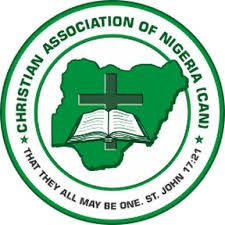
Election Violence: If hoodlums snatch BVAS on election day, It will immediately be deactivated – INEC
Ahead of the February 25 and March 11 general elections, the Independent National Electoral Commission (INEC) on Wednesday revealed the action to be taken if hoodlums snatch the Bimodal Voter Registration Systems (BVAS) on election day.
According to the electoral body, the BVAS, the technology that will be used for the accreditation and authentication of voters come 2023, will be deactivated from the backend so that whoever snatched the device won’t be able to manipulate votes.
“If a BVAS is snatched, we have a system in place that can deactivate that particular BVAS,” said INEC Deputy Director of Information and Communications Technology, Lawrence Bayode on Channels Television’s special election programme, The 2023 Verdict.
“We deactivate it so that whoever snatches the device will not be able to do anything with the device because the device pushes the accreditation data automatically on its own even without the operator pushing a button. When it is idle, it pushes that accreditation data to the backend.”
With its return to democracy in 1999, past elections in Nigeria have been marred by ballot-box snatching in some polling units as hoodlums and gunmen overwhelm police officers and other security agents to disrupt the voting process.
However, the electoral body expressed confidence in the ability of security agents to secure sensitive and non-sensitive materials at the polling units. The electoral umpire, however, said should snatching of BVAS occur, hoodlums won’t be able to achieve anything with it.
According to the INEC official, if 50 persons were already accredited on a device, and the device is idle, waiting for more voters to come, it will push the 50 already accredited voters to the backend.
“They (hoodlums) can’t take over the accreditation process because the device is designed to push the accredited voters to the backend,” he said.
Bayode said if hoodlums take the device to other places where they think they can manipulate the data on the device, the polling unit officer will report the incident.
“If such thing happens, the PO reports and from the backend, that device is deactivated so that the person who took away that device will not be able to do anything with the device,” he said.
Asked what if the polling unit officer is not able to report the hijack immediately, the INEC official said, “Even at that, the person who took the device won’t be able to do anything.”
Similarly, INEC Director of Voter Education and Publicity, Victor Aluko said the window for the collection of Permanent Voters Cards (PVCs) have closed till after the 2023 general elections.
He said INEC won’t take uncollected PVCs to polling units on election day because that will be a distraction for the polling unit officers
“Whoever genuinely registered and was not able to collect it (PVC), it pains us, but we are assuring them that if they miss this particular election, there are other elections, they will still be able to collect them and vote in the future,” he said.
The BVAS and INEC Result Viewing Portal (IReV) are stipulated in the Electoral Act 2022 and it is a technological system that allows the accreditation of voters through biometrics capturing, uploading of results amongst others. It has been described by many as an upgrade of the smartcard reader used in the last general elections which achieved some results in the country’s electoral process.
Though many politicians have expressed hesitation on the use of the BVAS for this year’s elections and headed to court to stop its deployment, INEC has consistently maintained that the device will be used.
The electoral body also said it has enough BVAS devices to conduct elections in the 176,846 polling units nationwide, adding that politicians buying PVCs to manipulate the 2023 general elections are engaging in futile efforts because the BVAS will reject biometric data of persons who are not original owners of the traded PVCs.
Meanwhile there was briefing of the Federal Executive Council presided by President Muhammadu Buhari by the Chairman of Independent National Electoral Commission (INEC), Mahmood Yakubu.
Also expected to brief Council is the Inspector General of Police, Alkali Baba.
Before the briefing, a minute silence was observed in honour of Air Commodore Dan Suleiman (rtd), former Minister of Special Duties under General Yakubu Gowon (rtd).
He was a member of General Murtala Muhammed’s Supreme Military Council in Nigeria between July 1975 and March 1976, and was military governor of Plateau State from March 1976 to July 1978 after it had been created from part of the old Benue Plateau State.
The INEC chairman on Tuesday had attended a meeting with the Governor of the Central Bank of Nigeria (CBN), Godwin Emefiele.
Accompanied by 11 INEC National Commissioners, the INEC Chairman in his address noted that the meeting was because of the apex bank’s unique role in the conduct of elections. However, this meeting was particularly focused on the recent cash withdrawal policy of the CBN.
The INEC boss said the Commission is challenged by this policy as there exist lots of services the Commission must render with cash.



